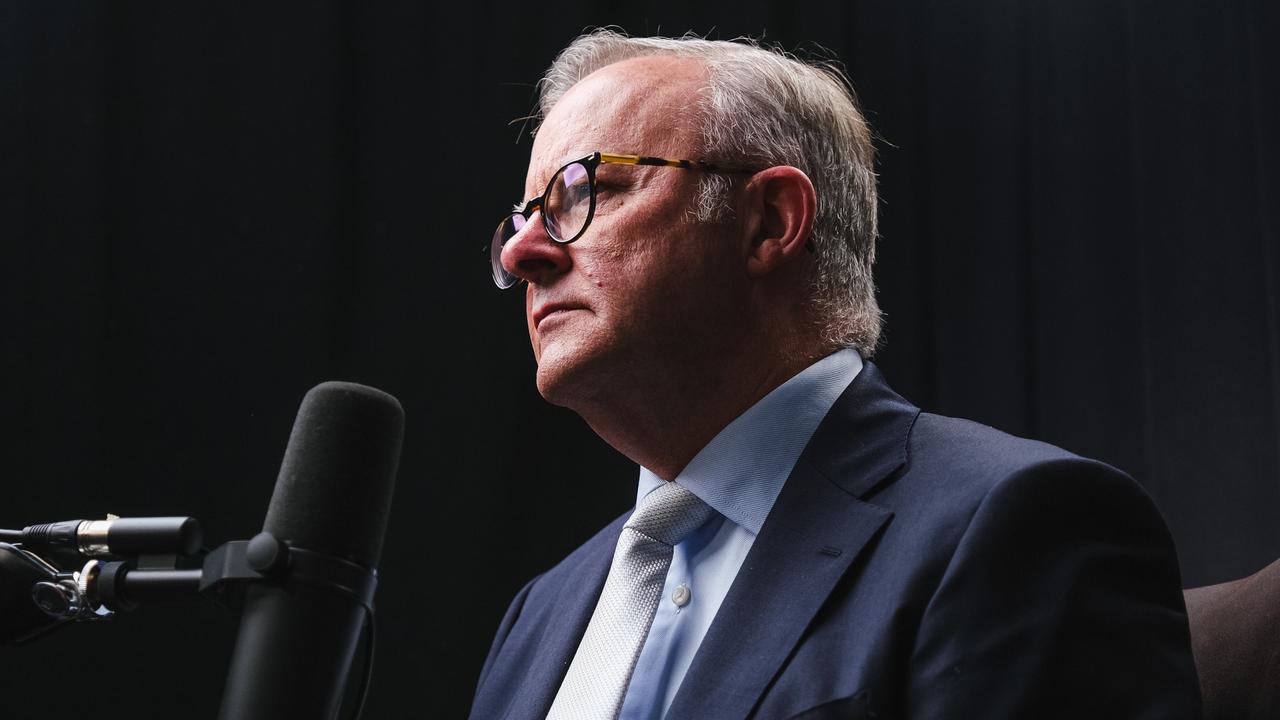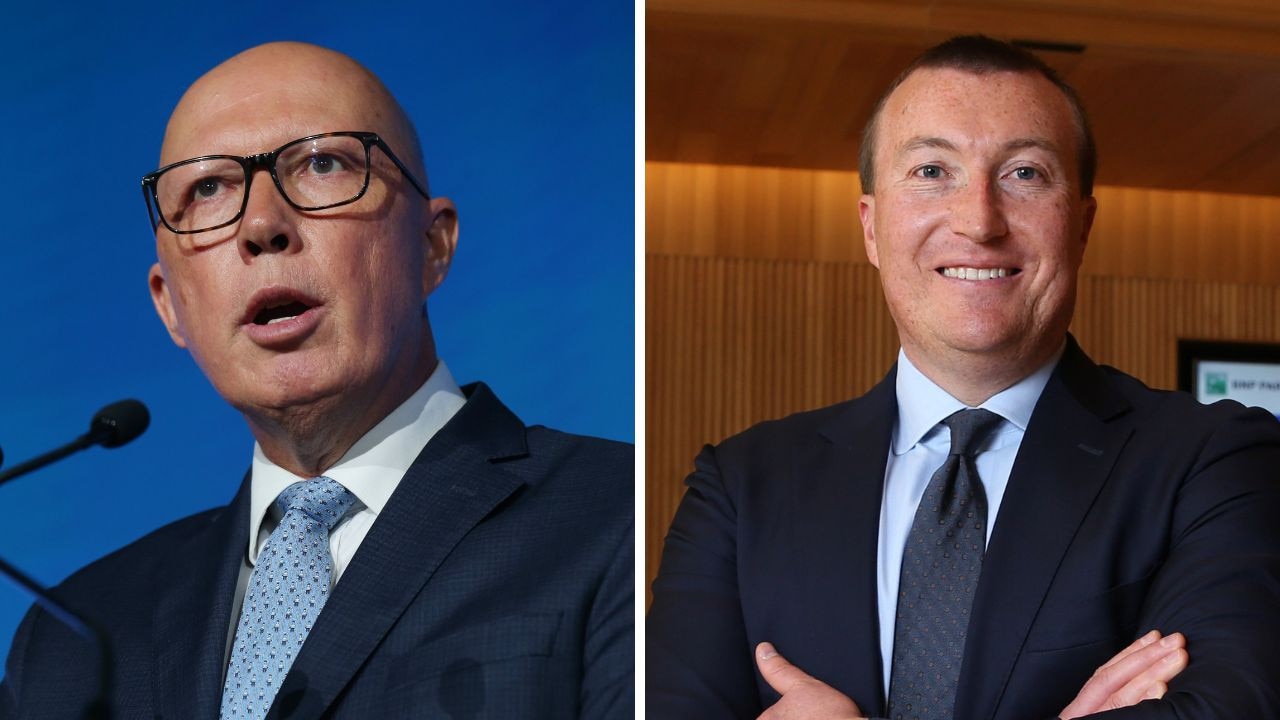Inflation road has cafes running on empty
The pressure of high interest rates, soaring energy prices and persistent inflation are making it all too much even for small businesses doing well.
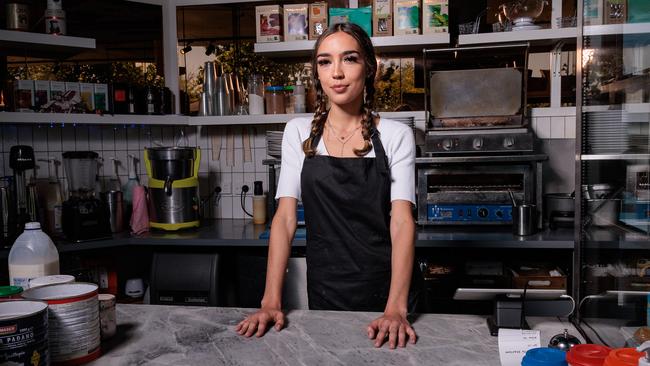
It was Jannah Rashwan’s second day at her first job when she realised the cafe she works at may not survive until the end of the year.
The 20-year-old wanted to use her job as a waitress at Caffe Stazione as a stepping stone to a career in hospitality.
But her boss, 37-year-old James Reed, has been hit hard by a costs crisis that has torn through the nation’s small business sector, leaving both their dreams in doubt if the economy does not improve in the next 12 months.
“There’s no profit here … we’re just paying the staff and working for a wage,” Mr Reed said. “We probably won’t be here by the end of the year.”
Caffe Stazione’s story is the story of this part of the Maroondah Highway, which acts as a high street for the eastern Melbourne suburb of Ringwood.
The business owners and their staff should be Anthony Albanese and Labor’s voters for the taking.
The Liberals hold Menzies – which the Maroondah Highway cuts through – by a margin of just over 2000 votes, but a federal boundary redistribution makes the seat notionally Labor.
But everywhere on the street the pressure is the same for cafe and restaurant owners.
High interest rates, soaring energy prices, and persistent inflation mean it’s harder to make ends meet. And even for businesses doing well, costs are whittling away at profits.

Mr Reed has already accepted the painful reality that his wife and children will have to find work elsewhere, and his team, including Ms Rashwan, will be left without jobs.
“Once the lease is up, that’s it, see you later. I have to send my wife and kids to work,” he said.
Ms Rashwan was glancing around the cafe as she heard the news. What was meant to be a stepping stone into the hospitality industry now feels more like a ticking clock.
“I don’t know what I’ll do if it closes,” she said.
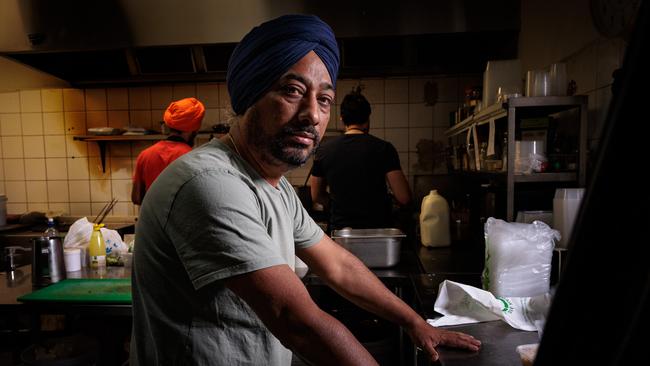
The Australian Bureau of Statistics announced a sharp drop in the inflation rate last Wednesday, but businesses in key election battlegrounds have already suffered dramatically.
There was a 71 per cent increase in insolvency appointments in the six months to December 31, with 2181 business failures logged compared with 1275 during the same period a year ago. And based on the trend, total insolvencies for the 2025 financial year are likely to smash previous records.
Ringwood’s favourite Indian restaurant is just a couple of doors down from Caffe Stazione.
There the fears and the anger at the economic situation are similar.
Over the past eight years, Kuldeep Singh has had a front-row seat to the unfolding business crisis on the Maroondah Highway, with one of his family owned Royal Punjab restaurants forced to close. Mr Singh, who migrated to Australia from India in 2009, has traditionally been a loyal Labor voter – until now.
The 45-year-old father claims the Labor government used the Covid pandemic as an excuse for high interest rates and accused it of failing to tackle inflation soon enough.
His wife was forced to leave her full-time job in the broadcast industry to help out in the kitchen, with the business unable to hire staff due to financial constraints.
“We’re just surviving and it’s very hard to make a profit,” Mr Singh said.
“The interest rates aren’t coming down, inflation is too high and people aren’t spending much money. The cost of living is crazy. I don’t think Labor is doing enough for small businesses so I do hope they don’t win the next election.”
Across the Menzies electorate, business owners echoed the same concerns: rising costs, dwindling profits and no end in sight. Frustration with Labor’s handling of the cost-of-living crisis has become palpable.
Just next to Mr Singh’s property, a Korean restaurant that once drew weekend crowds is battling the same crisis.
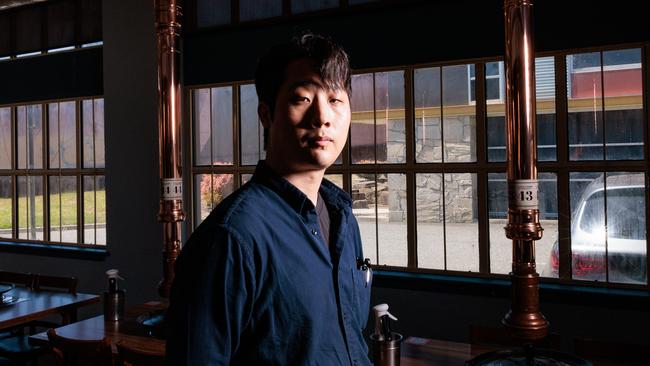
Soaring utility costs and a step-up in debt collection by the Australian Taxation Office have taken a toll on the SSAM Korean BBQ Buffet.
Manager Andy Kim said although the business was doing well, electricity and gas were costing it at least $4000 a month – a 20 per cent increase from the 2023-24 financial year.
“We had to consider looking at different power suppliers to help reduce the cost, but it’s still quite high,” he said.
Mr Kim, like many others, was re-evaluating his political stance.
“Of course, we will be considering who to vote for this year. We need relief,” he said.



